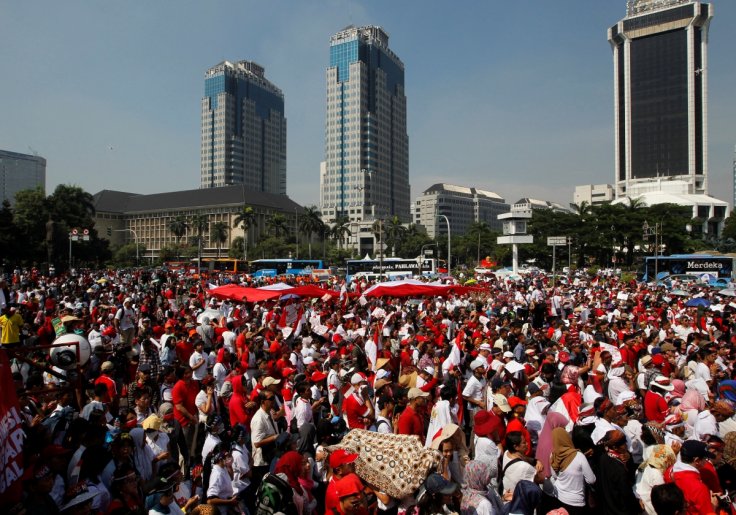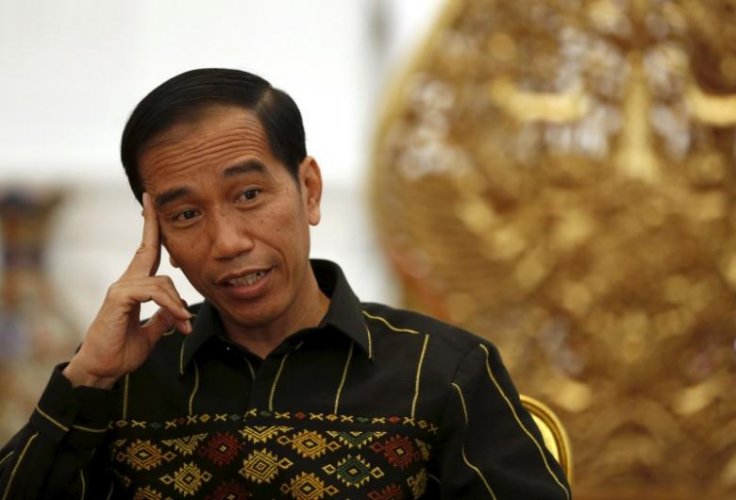Indonesia's ambitious project to build a brand new capital city on the Borneo island will be headed by a star-studded committee that comprises former British Prime Minister Tony Blair, United Arab Emirates crown prince Mohammed bin Zayed and billionaire Japanese investor and Softbank chairman Masayoshi Son.
Indonesian President Joko 'Jokowi' Widodo invited global investors to participate in the construction of the new capital in East Kalimantan. "MBZ will be the chairman, the other two members of the board are Masayoshi Son and former British prime minister Tony Blair. They will answer to President Joko Widodo," Indonesian minister Luhut Pandjaitan said in Abu Dhabi.

Why is Indonesia building new capital?
Widodo announced the relocation of the capital in August last year. The rationale was to move the capital from the overpopulated Jakarta, which is marred by traffic snarls, pollution and the prospect of sinking in the near future. The proposed site for the new capital in the East Kalimantan province sits between Samarinda City and the port city of Balikpapan.
"It is a strategic location at the center of Indonesia, close to a growing urban area," Widodo said at that time. The new smart capital will be built at a cost of $33 billion (€29.7 billion) and the project is expected to be completed in 2024. The construction of the new capital will be funded by the state, public-private partnerships and private investment.
Jakarta -- polluted, overcrowded and sinking
Jakarta, which has a population of 10 million, is also one of the world's most polluted cities. Before the government decided to abandon Jakarta as the capital, it laid out a $40 billion plan to save the sinking city. "People assume Jakarta is doing fine. Jakarta is not doing fine at all. The water condition is a cause for concern, wastewater, air pollution," Indonesian economist Bambang Brodjonegoro told Reuters.

Worsening water crisis
Apart from crippling traffic snarls, water crisis is the most vexing problem that has been affecting the Indonesian capital. Only 60 percent of the city residents have access to piped water, a factor that pushes people to dig wells for groundwater. The over extraction of ground water makes the city prone to floods and sinking due to subsidence, the economist said. "Rising sea levels aggravated the sinking with some part of the city dropping as much as 11 inches a year, making Jakarta the fastest sinking city of its size globally," the report adds. At the current sinking rate, as much as 95 percent of Jakarta will be underwater by 2050, experts have warned.
Relocation's economic benefits
Another factor the government weighs is the economic benefits that the relocation will bring to other provinces. "The economic gap between Java and outside Java has continued to widen despite the regional autonomy policy launched in 2001," Jokowi said. The president pointed out that as much as 54 percent of of Indonesian live on Java island. As much as 58 percent of Indonesia's gross domestic product also comes from Java, despite that being the smallest of the five major islands.

Where is the new capital coming up?
Indonesian authorities have identified 632,500 acres of land on Borneo island, which is about four times the size of Jakarta. The vast swath of land is mostly owned by the government, and therefore delays owing to costly land acquisition procedures are not expected to hit the new capital development. Nikkei also points out that natural disasters like earthquakes, floods and volcanic eruptions are less common in that area.
"Why the urgency now? Because we cannot let Jakarta and Java island continue to carry burden that is getting heavier from population density, severe traffic jams and air and water pollution that need to be tackled," the president said in a televised speech.









